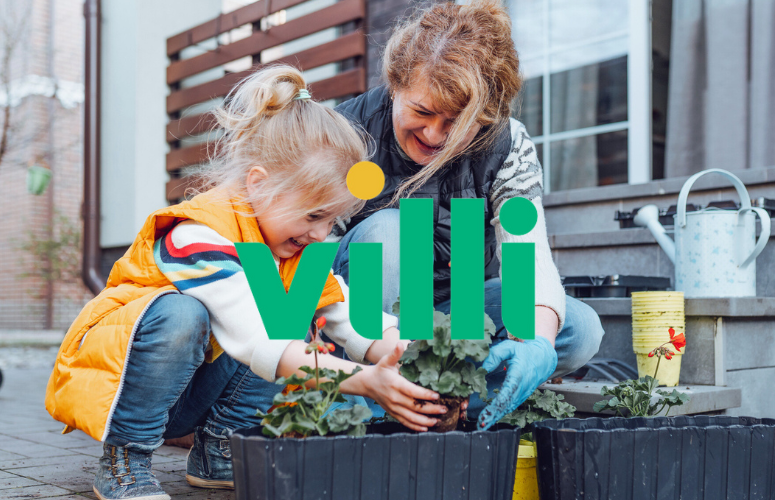Kindness is often thought of as something we do for others, a selfless act of generosity, a simple gesture to brighten someone’s day. But science tells us that kindness doesn’t just benefit the recipient – it has a big impact on the giver, as well. Helping others can boost our mood, improve our health, and even increase our lifespan.
But what exactly happens in our minds and bodies when we help others? Let’s dive into the science of kindness and discover why being good to others is one of the best things you can do for yourself.
Kindness and the Brain: The “Helper’s High”
Have you ever noticed how good you feel after doing something nice for someone? That’s not just in your head—well, actually, it is in your head, but there’s a biological reason for it! When we engage in acts of kindness, our brain releases a cocktail of feel-good chemicals, including:
- Dopamine – Known as the “reward chemical,” dopamine makes us feel happy and accomplished.
- Oxytocin – Sometimes called the “love hormone,” oxytocin fosters social bonds and reduces stress.
- Endorphins – These natural painkillers create a sense of euphoria, similar to the effect of exercise.
These chemicals create what researchers call the “helper’s high.” It’s a rush of positivity that makes us feel good and encourages us to continue being kind.
The Physical Health Benefits of Kindness
Acts of kindness don’t just warm the heart! Studies show that regularly helping others can lead to:
- Lower blood pressure – Kindness and social connection help reduce stress, lowering blood pressure and improving heart health.
- Stronger immune function – Positive social interactions boost immune responses, helping us fight off illness.
- Reduced chronic pain – Engaging in selfless activities can activate pain-relieving pathways in the brain.
One study even found that people who volunteer regularly tend to live longer. It turns out that kindness is a powerful form of self-care!
Kindness and Mental Well-Being
If you’ve ever felt a little low and then found that doing something nice for someone lifted your spirits, you’re not alone. Acts of kindness can be a natural antidote to stress, anxiety, and even depression.
Research shows that helping others:
- Reduces levels of the stress hormone cortisol.
- Increases feelings of self-worth and purpose.
- Enhances social connection, reducing loneliness.
For adults in particular, staying engaged in meaningful activities, like lending a hand or sharing wisdom, can provide a sense of purpose and joy that leads to greater overall well-being.
Small Acts, Big Impact
The best part about kindness? It doesn’t have to be big or time-consuming. Even small gestures can have an impact, both on others and on ourselves. Here are some simple ways to bring kindness into daily life:
- Offer a compliment. Genuine words of appreciation can make someone’s day.
- Hold the door open. A simple act of courtesy goes a long way.
- Send a thoughtful message. A quick “thinking of you” text can brighten someone’s mood.
- Listen actively. Sometimes, the greatest gift we can give is our attention.
- Help a neighbor. Whether it’s bringing in their mail or sharing a meal, small acts of support strengthen communities.
How Kindness Spreads: A Chain Reaction of Good
One of the most interesting aspects of kindness is how it spreads. Research shows that when people witness or experience kindness, they’re more likely to pay it forward.
This means that one act of kindness doesn’t just stop with the initial giver and receiver, it continues to ripple outward, creating a chain reaction of positivity.
Imagine if each of us committed to just one act of kindness a day. How much brighter would our communities be?
The Takeaway: Kindness is Good for Everyone
Kindness isn’t just good for the world, it’s good for you. Science confirms what we’ve long felt in our hearts: helping others makes us happier, healthier, and more connected. And the best part? Kindness is contagious.
Kindness can change lives, including your own, whether it’s a warm smile, a helping hand, or simply showing up for someone in need.
What is one small way you can spread kindness today?
The Villi team is here to help.
Need an extra hand? Then, consider Villi’s homemaker and companionship services. Our team of friendly, compassionate Companions takes great pride in serving people in their community who need light assistance with daily chores, some company and conversation, or convenient transportation for errands, appointments, or trips to the store.
Explore our services to learn more about our:
- Homemaker and companionship services
- Easy-to-use scheduling platform
- “Best Value” service pricing
- Only 1-hour service minimum
Sign up in seconds to enjoy free 24-hour access to our on-demand scheduling platform, where you can view our team of vetted compassionate companions.
If you have questions about our services, please call 1-844-624-5646 to speak to one of our caring service Advisors.
Article Sources:
American Heart Association – Does kindness equal happiness and health?
UC Davis Health – The Power of Practicing Kindness
Cedars-Sinai – The Science of Kindness
American Psychiatric Association – The Mental Health Benefits of Simple Acts of Kindness
NIH – Volunteering and Subsequent Health and Well-being in Older Adults
The Nation’s Health – Practicing Kindness is Good for Your Health
